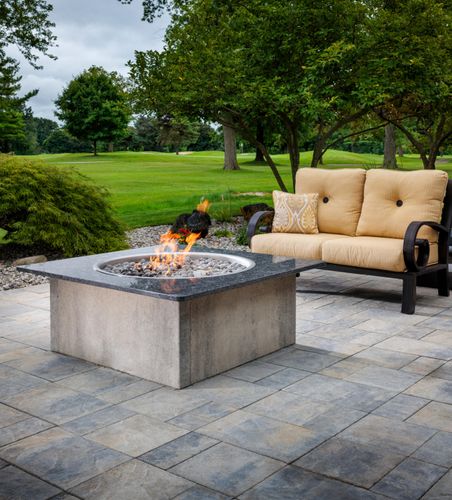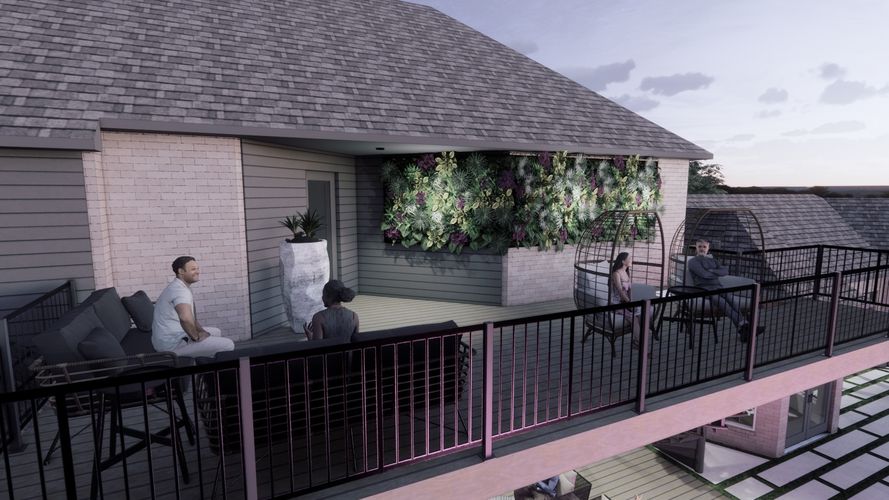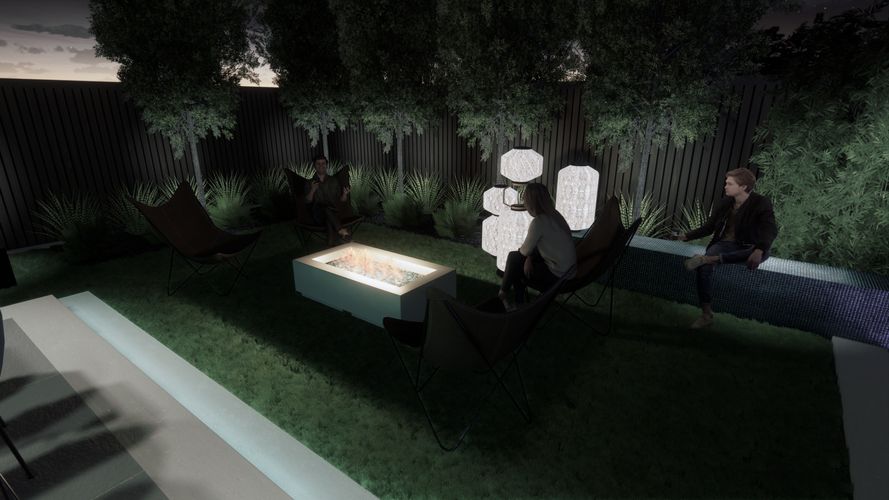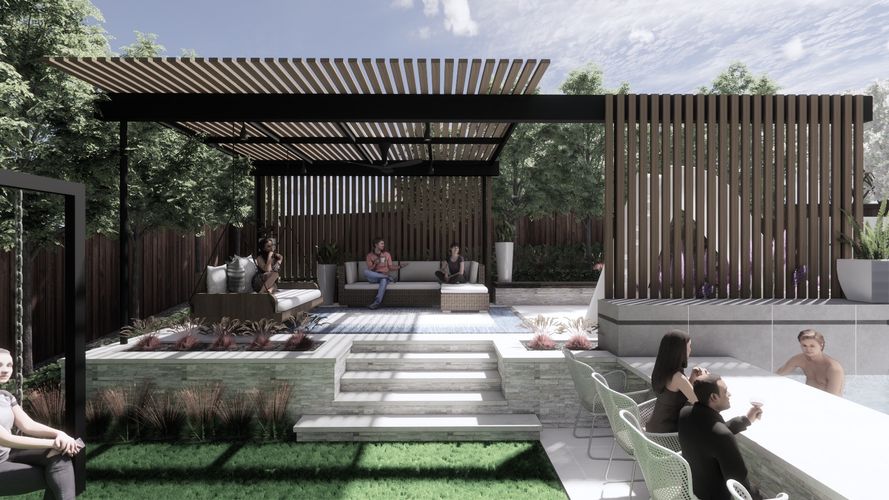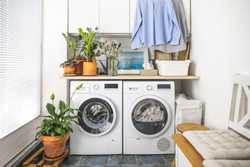Outdoor Living Space Ideas for Summer and Beyond
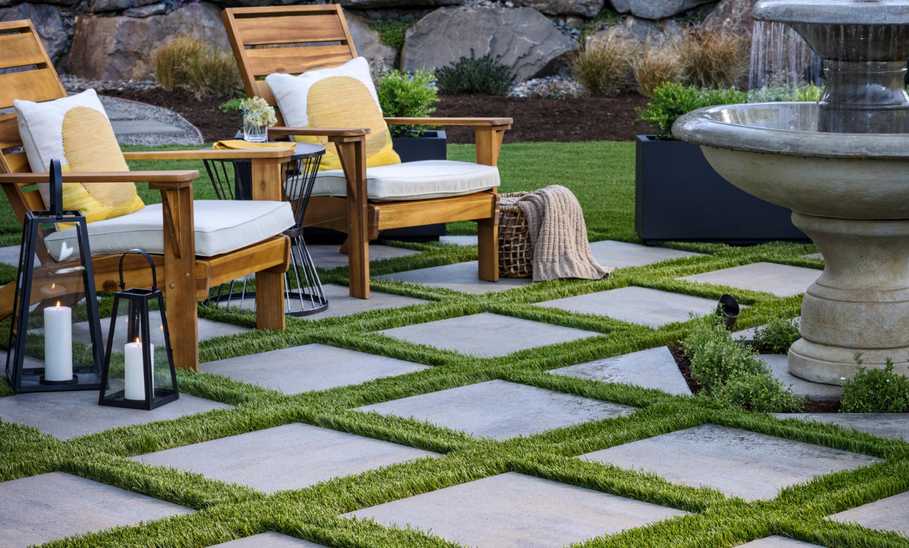
Our evaluations and opinions are not influenced by our advertising relationships, but we may earn a commission from our partners’ links. This content is created by TIME Stamped, under TIME’s direction and produced in accordance with TIME’s editorial guidelines and overseen by TIME’s editorial staff. Learn more about it.
Whether you live in an apartment or a house, having functional and comfortable outdoor living spaces can improve your lifestyle and health. For every home I’ve lived in, the outdoor space (no matter how small) was critical to getting more enjoyment out of it. I spoke to design experts to get their take on the continued trend of outdoor living.
“Outdoor living experienced a renaissance during the pandemic, and that trend continues today,” shares Joe Raboine, vice president of design at Oldcastle APG. “Science shows that spending time outside is good for our physical and mental health, and I think people started to understand those benefits when their outdoor spaces became essentially the only place they could go during lockdown.”
He continues, “Since then, outdoor living spaces have become valuable additions to homes where people can relax and recharge alone, with family, or entertain guests.”
You don’t have to have deep pockets to create an outdoor living area, either. Regardless of your space’s size, there are numerous ways to bring the comforts of the indoors into nature. I spoke to several interior designers about the best ways to create living spaces outside, from a spacious backyard to a small terrace.
Experts say it's critical to measure your space so you can plan for adding furniture, plants, and other features. Always allow for 2 to 3 feet of space for foot traffic and clearance for safety if you have a fire pit, grill, or other feature that heats up. Don’t block views, doors, or windows when you lay out your space, either. Ideally, the flow from inside to outside your home should have a clear path. Make sure any steps are clear and that any entrances, like French and sliding doors, can open and close all the way.
Just like the inside of your home, consider your preferred style when it comes to outdoor living, and don’t be afraid to bring indoor comforts outside. I have a dear friend with a beautiful backyard. I’m always impressed by how she seamlessly blends indoor and outdoor materials and furniture, like colorful blankets, throw pillows, and a teak table that can go inside or out.
“A lot of people don’t think of their outdoor space the same way they do or their indoor space,” shares interior designer Shea McGee, co-founder of the popular Studio McGee, an interior design firm. “But the truth is, nearly everything that is made to live indoors is also made, in a different way, to live outdoors. Incorporating furniture pieces designed with form and function in mind expands your living space by bringing the comfort of the indoors out.”
Are you planning to cook outside, watch movies and sporting events, have a water feature, or will it get a lot of use from the kids or grandkids? After you have measured your space, consider how you want to use it and how to embrace the environment you have.
“Treat your outdoor areas just as you would the inside of your home. Create inviting seating arrangements primed for conversation, dining areas with easy access to the kitchen or grill, and accessorize with pillows, throws, and umbrellas (or even a cabana!) to make your guests so comfortable that they never want to leave,” advises Challie Stillman, vice president of creative at Resource Furniture.
Maybe your patio will be home to an outdoor kitchen, or your deck a play zone for kids and pets, with a splash pool and plenty of hanging chairs. If you are lucky enough to have a larger outdoor area, designating zones for specific activities, like eating, relaxing, and fun, can help you use the space to its maximum living potential.
“When I begin designing a space for a client, because my job typically takes place around an existing home, one of my main goals is to make my design additions match whatever is there,” says Brad Holley, senior designer at Foxterra Design. “In an ideal world, your outdoor space should look intentional, as though it were planned and designed with feedback from the architect, the home builder, the landscaper, and the developer. This goes for structures, furnishings, decor, and even the plantings you choose. Everything feels better when it all flows together.”
A patio, like a deck, may have a large or small footprint. If you have a patio, the first step in creating a spot for you to relax or entertain is to measure the square footage, making sure you have enough space to move around comfortably once you add furniture.
Adding more plant life is always a great way to enhance your patio and add color, suggests Raboine. “If you have the space and funds, you can add built-in planters to seamlessly blend plants into your patio. A simple pergola can be affordable and easy to install to add sun protection, privacy, and a decorative element on any patio.”
In addition, potted flowers, a bird feeder or bird bath, or even a small Koi pond could bring beauty and color into your patio living space.
Depending on the size of your patio and your budget, adding paving stones, like river rock or bluestone, are two ways to upgrade. If you love having a fire in the evenings, adding a fire pit or stove — I love the Solo stove on my patio, which was paved with blue stone, for instance — is an accessory worth investing in. Furniture like a small table, weatherproof, comfortable chairs, outdoor lights (Edison string lights always seem to be in style), and even a privacy screen, if you live close to your neighbors, are good options, depending on the size of your patio space, as pavers.
“Pavers have a long lifespan and require minimal maintenance. There are a variety of textures and colors available today that match any aesthetic,” shares Raboine.
If your patio has access to exterior walls, a pull-down movie screen, wall-mounted television, or an outdoor fireplace are all ways to bring indoor comforts to your outdoor living spaces.
“Even if your outdoor space is small, there are creative ways to make it feel more fun and functional. Going vertical takes up less space and can add privacy. Think about creating a vertical garden with florals, or even small fruits and vegetables,” suggests Raboine. Balconies can make a good spot for these climbing gardens, and if your balcony is in an urban area, it’s easy to provide greenery without compromising a footprint.
“Before selecting outdoor furniture and products, it's crucial to reflect on the intended purpose and the way they interplay with sunlight in the designated area. Awnings and pergolas are a great way to introduce the indoor/outdoor atmosphere — similar to a European coffee shop, where the covered seating becomes part of the space and experience,” suggests Ashley Smith, president and managing director of Markilux USA.
If you can’t afford to install an awning (or your landlord won’t allow it), consider using a bamboo screen for privacy and natural texture, plus string lights. When you have a small space, like a vertical balcony, experts agree these are a good choice. Sail shades and screens can also add privacy to a balcony and other outdoor spaces.
The right-size bistro chairs and tables, or a hanging chair or hammock, can be inexpensive pieces that may need less room, say, than an Adirondack chair. However, consider the purpose your balcony will serve and how much natural light it receives. String lights and paper lanterns are good fits for lighting up a smaller space after the sun goes down.
If you’re lucky enough to have a large backyard or deck (or both!), you may be able to zone individual areas to keep things functional and get the most use out of your space.
For example, you could install a homemade cabana next to a swimming pool or add a vegetable and herb garden near an outdoor kitchen area. Hammocks in a shady section of the yard can create a relaxing oasis, especially if you add pillows and throws. If you don’t have shade, consider large outdoor umbrellas or sail cloths.
Setting up your outdoor furniture, like couches, lawn chairs, and side tables for lounging in one area and a long table and chairs in another, can allow you to maximize your outdoor enjoyment.
“Taking a phased approach to [creating] your outdoor living space can help you feel less overwhelmed when you have a larger yard. Depending on the features you want to include, you can create a plan to divide and conquer them in the order that makes the most sense,” says Raboine.
Don’t be afraid to start slow. For example, “If you want an outdoor kitchen but can’t quite commit to that big of a renovation at once, start with upgrading to a paver patio with a grill, then build around that until you have your dream kitchen,” he says.
Other items that can add enjoyment to a large space include trending outdoor features like a small barrel sauna, butterfly garden, cold plunge tub, lap pool, or area to play lawn games, which can all be added over time.
Landscaping is especially important in a large space to spread out greenery, trees, and flowers. High hedges or a line of blooming trees can also provide some privacy in your yard. Good options for this are arborvitae, privet, mock orange, and yew trees. “An outdoor space should be a curated arrangement of the plants and flowers that thrive in the local environment and attract birds, bees, and critters,” says Stillman. “Landscape design, and even potted plants in smaller spaces, can transform the ambiance from barren to luscious.”
Most terraces are located on the side of a home, sometimes above a hilly area of the property, or on the rooftop of a building. Terraces are most common in apartment buildings, but builders do add them to houses. Similar to a patio, a terrace is a great place for pots of flowering plants, comfortable seating, or a dining table. If you have a small terrace, most of the rules for a small patio apply. Allow enough space to move comfortably around furniture or planters.
Consider a sail cloth for shade and a screen for privacy. When I spent time in Italy, many of the agriturismos my family stayed in had attached outdoor terraces overlooking olive trees, with small bistro tables, terra cotta pots of flowering plants, and simple yet comfortable seating.
“When designing a small outdoor space, look for items that transform or fold away to make the biggest impact. Multifunctional furniture affords you the functionality of multiple pieces without overcrowding a small space,” says Stillman. She works with Resource Furniture, which specializes in space-saving furniture, and suggests using foldable and expandable furniture when working with a smaller footprint.
McGee suggests elevating outdoor dining for maximum style when dining outdoors. “Making your outdoor gatherings feel thoughtful doesn’t have to be complicated. Start with functional entertaining essentials like melamine plates and woven placemats, and complete the look with printed table linens, candles, and pretty glassware. Go for real linens versus paper,” she says. “For one, they’re heavier and less susceptible to wind, plus they’re a lot more aesthetically pleasing among your other tabletop pieces.”
Don’t neglect your outdoor space, even if you’re on a budget. You can get a lot out of your deck, patio, or even a backyard without splurging on updates. “Look around your home for items that can be repurposed. Old furniture can be given a new life with a fresh coat of paint, and pallets can be turned into seating or tables,” recommends Smith. “Incorporate plants that are affordable and easy to maintain. You can even start with seeds or cuttings from friends and family to save money. Invest in a few key pieces that will make a big impact, like a comfortable chair, durable shading, or a stylish rug. Build your space around these focal points.”
“The three critical pieces I think everyone should have are a seating set (or at least a sofa), a unique coffee table, and then it’s a toss-up between interesting side tables or oversized planter pots,” shares Holley. “And while there’s probably a much longer list than this, some of my favorite furniture designers/manufacturers are Dedon, Article, AllModern, and Joybird.”
The information presented here is created by TIME Stamped and overseen by TIME editorial staff. To learn more, see our About Us page.
